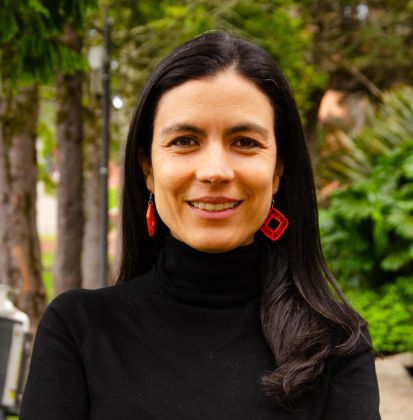The Home-Debt Nexus: Feminist Perspectives on Housing, Gender, and Everyday Life in Mexico City, Buenos Aires, and Bogotá
Año de Aprobación: 2025
Código del Proyecto: PR.2.2025.11787
Descripción: Living with debt has become a widespread experience in the aftermath of the COVID-19 pandemic, the related increases in cost of living and private debt-taking, and years of widespread austerity measures and low income levels. In Latin American cities, household debt has evolved in and due to a housing crisis caused by diverse processes of housing financialization (IBD, 2022): While access to subprime mortgages for single-family housing indebted lower- and middle-income populations in some cities, elsewhere, the financialization of and speculation with rental housing fostered indebtedness through rising rents and resulting rent arrears (Albers et al, 2020). These market dynamics have gone hand in hand with spatio-material transformations that have shaped the lives of households and urban communities, thereby challenging modalities of making home: Housing speculation in urban peripheries has scattered families, evictions have ruptured community relations, and the degradation of housing stock has shaped households’ sense of security and belonging. The intersection of these challenges – of making home and living with debt – endangers the reproduction of life itself and thus emerges as one of the key challenges for sustainable urban futures that has been particularly crucial for female-headed households, which bear the brunt of this burden.To better understand the home-debt nexus, this project advances feminist perspectives on debt and associated relations of dependency, on the diverse mundane and political responses of female-headed households to cope and come out ahead of their debt crisis, and on how these households are shaped by the material (home) geographies of the city. To this end, the project weaves together economic and feminist thinking on housing finance and home with (urban) debates on debt. Recent work on the financialization of housing (Janoschka & Salinas, 2017) has documented processes of exploitation through subprime lending, the entangled sprawl of housing units in urban peripheries (Reis & Lukas, 2022), and the increasing indebtedness of rental households (Guerreiro, 2022). Across feminist takes on financialization (Cavallero & Gago, 2021), there is a deepening consensus that understanding the consequences of housing debt requires an interrogation of how debt relationships are woven into everyday life (Garcia-Lamarca & Kaika, 2016), particularly of women, and in the work of social reproduction (Federici, 2014). Yet, only a few of these accounts have centred the home as a site of the debt crisis (but see Brickell, 2020; Smith, 2008) and unpacked the various relations of dependency related to multiple – formal and informal – relations of debt. Moreover, contemporary literature largely fails to address the practices through which women respond to this crisis to rebuild residential infrastructures, overcome dependencies, and restore community life.To address these gaps, our research questions (RQs) address the combined challenges of women’s dependency at the nexus of indebtedness and making home, their everyday practices of responding to these challenges, and the geographical and material conditions of indebted life. First, we investigate how formal and informal relations of debt create and transform relations of dependency with families, neighbours, landlords, communities, banks, the city, and the state (RQ1). Second, we ask how female-headed households practice individual or collectivized strategies of repair, care, maintenance, and community building and organizing (RQ2). Third, we inquire into how these relations and practices are conditioned by the infrastructure of housing and the geography of the city (RQ3). These questions are motivated by two objectives: First, a qualitative, comparative study of female-headed households in Mexico City, Buenos Aires, and Bogotá provides new empirical insights into the home-debt nexus through selected in-depth case study research. Second, the project gathers these insights and the longstanding engagement of experts from geography, political science, anthropology, and urban studies into comparative conceptualizations. Methods will be mixed: Contextualized in an analysis of legal frameworks and policy papers, data will be collected through expert interviews, serial interviews, focus groups, and go-alongs.


